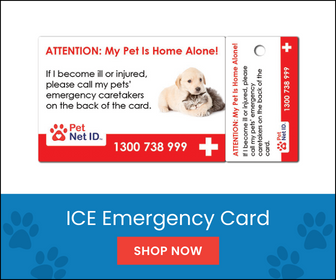
Accidental Urination or Defecating in Dogs – Related Illnesses
If your dog is experiencing accidental urination or defecating, there are several potential illnesses which can trigger accidental urination or defecating in dogs.
Accidental Urination or Defecating in dogs can trigger noticeable changes in your pet dog’s overall health and also actions.
Knowing the accidental urination or defecating in dogs is the first step in protecting your pet’s health and wellness.
We have itemized several of the usual health problems in canines when they are experiencing accidental urination or defecating. Please click on the links of ailments listed below to get more information.
| Dog Illnesses & Health Conditions |
|---|
| Seperation Anxiety in Dogs |

Recognising Signs And Symptoms Including Accidental Urination or Defecating in Dogs
Monitor your dog’s daily activity – Manage to keep a notebook of when your pet dog relieves himself, when his symptoms happen, when he consumes, and so forth.
This allows vets to find a pattern to the signs and symptoms. It can also be a very valuable tool for the vet to detect your dog’s health issues.
If your canine is mildly ill (not eating the best for a day, troubled, vomiting one or two times, a spell of diarrhea) you can carefully observe your pet at home as well as phone your vet for suggestions.
Seek prompt vet attention with certain symptoms – There are several serious symptoms that call for quick medical attention. Do not wait on these symptoms as well as call your vet immediately:
- Known consumption of a hazardous material.
- Unconsciousness.
- Unrelenting vomiting and diarrhea.
- Breathing troubles.
- Profuse blood loss.
- Seizures that do not stop within one min.
- New or repeating symptoms in a pet dog with a health condition (diabetic issues, Addison’s disease, etc).
- Incapable to urinate or not producing pee.
- Large swellings around the face, eyes or throat.
- Fractured bones.
Get advice from your vet on much less severe symptoms – Some signs and symptoms of ailment in dogs may be unpleasant for pet dog as well as might show health conditions that need to be dealt with. Call your veterinarian to get suggestions on treating the following signs and symptoms:
- The occasional vomiting and also looseness of the bowels lasting much longer than 1 day.
- Infrequent seizure that can go on for less than one minute.
- Sleepiness lasting a lot longer than one day.
- Fever.
- Lumps or bumps that instantly show up or recent ones that grow.
- Not taking food for more than one day.
- Hopping or acting painful.
- Difficulty excreting.
- Excessive drinking.
- Swelling that surfaces gradually.
- Any other weird symptom or behaviour (shuddering or whining).
Observe your canine’s demeanor – A pet dog parent can learn a great deal by observing the canine’s behaviour including things like how she or he is actually feeling. You’ll need to see to it his health is gradually getting better as well as responding to treatment. For instance, your family pet ought to begin to wag his/her tail, pay attention to you and stand up to greet you.
If he or she perks up and starts wanting food, then that is good sign to indicate he/she is feeling better.
On the contrary, if you notice your pet dog is turning into much less interactive or simply lying still, she or he might be getting worse and need to get medical attention.
Observe your puppy’s breathing – It is better to observe the breathing pattern of your pet and this can reveal to you inform you a great deal about how your pet feeling. If your beloved pet is in pain or experiencing some kind illness, he/she breathe heavily or pant.
In a lot of circumstances, coughing and heavy breathing are indications of a chest infection. You must likewise watch on your pet dog’s gums if his or her breathing triggers massive chest movements.
The gum tissues in your canine’ mouth need to be pink and healthy and balanced. Nevertheless, if the gums look tinged blue or pale, contact the veterinarian. Your beloved pet could not be getting sufficient oxygen and could be in breathing distress.
You can additionally maintain an hourly report of your pet’s breathing. Typically your pet take around 20 to 30 breaths per min. If your dog’s breathing rate surges continuously, his/her health issue has actually deteriorated and you need to contact the vet.





